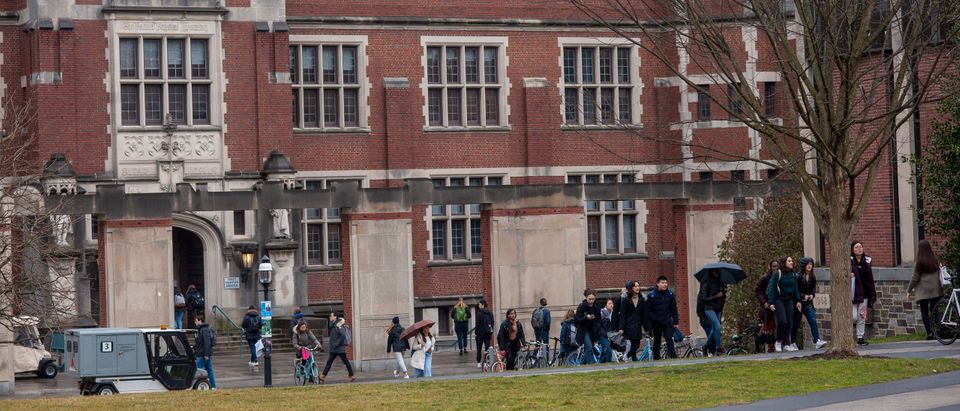A Princeton University student argued in a Sunday night opinion article that the school’s Honor Code unfairly impacts racial minorities, citing parallels to the U.S. criminal justice system.
The Ivy League school’s Undergraduate Honor Code lays out standards for student conduct that all undergraduate students must abide by and prohibits students from plagiarizing or cheating, according to its website. Emilly Santos, author of the op-ed and Princeton University student, likened the code to the United States criminal justice system to propose that it “disadvantages” minority students. (RELATED: UVA Loosens Sanctions On Liars, Cheaters, And Thieves)
“Princeton’s Honor Code, tasked with holding students accountable and honest in academic settings, mirrors the criminal justice system in its rules and effects,” Santos wrote. “It is harmful to the entirety of the Princeton community: the fear it instills in students fosters an environment of academic hostility. But it is often most damaging for first-generation low-income (FLI) students — students who also often belong to racial minorities.”
Honor Code violations include “tampering with a graded exam,” “claiming another’s work to be one’s own” and obtaining a exam materials prior to the examination date, the website reads.
Students who violate the Honor Code may be reprimanded, suspended, placed on probation or expelled, according to the university’s website. Students who are suspended for a semester are not eligible for university financial aid for the repeated semester, according to the university, however Santos argues this harms FLI students who rely on financial aid and would be plunged further in debt.
“FLI students, like many students, are often afraid of disappointing family and friends,” Santos wrote. “A lack of community support in these situations also puts FLI students at a disadvantage compared to their wealthier peers, whose communities often include people who are college-educated and have been exposed to academic integrity systems similar to Princeton’s Honor Code, and may understand the process better.”
A student at Princeton University writes that the school’s rule against plagiarism “unfairly targets” minorities, just like the criminal justice system. It is therefore racist and should be “dismantled” in the name of creating a “more equitable society.”https://t.co/
XvRtCQtXw1 — Aaron Sibarium (@aaronsibarium) January 31, 2023
Students who are accused of violating the Honor Code are given a hearing and may appeal the Honor Committee’s decision, according to the university website. Santos argued the process mirrors the criminal justice system by “mimicking processes of questioning, evidence gathering [and] witness depositions” and said that the ruling could overshadow the student’s accomplishments at the university, similar to how “a criminal record haunts previous convicts.”
“Princeton, as an institution that aims to educate world leaders and brands itself with social justice discourse, must first address the existing parallels between the [criminal justice system] and these smaller-scale systems we subscribe to,” she wrote. “Specifically, we must re-examine the role of the Honor Code and Honor Committee in our community. The University should lead by example by dismantling the Honor Code system, which acts as a barrier to social mobility and a more equitable society. Only once such internal injustices are addressed can we make real-world changes.”
Santos told the Daily Caller News Foundation that the article did not fully “convey” her opinion.
“I don’t feel that the piece was representative of what I had originally written when turning in the piece for edits, nor of the perspectives I had originally hoped to convey, as a result of several edits by members of the editing committee,” she said.
Princeton University did not immediately respond to the Daily Caller News Foundation’s request for comment.
All content created by the Daily Caller News Foundation, an independent and nonpartisan newswire service, is available without charge to any legitimate news publisher that can provide a large audience. All republished articles must include our logo, our reporter’s byline and their DCNF affiliation. For any questions about our guidelines or partnering with us, please contact licensing@dailycallernewsfoundation.org.


